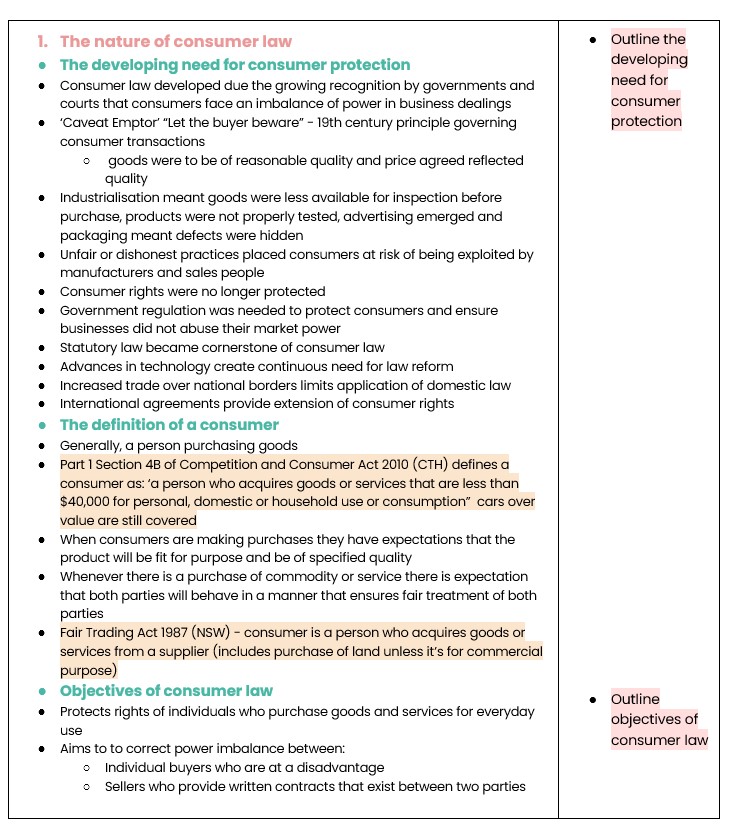HSC Legal Studies Consumers
Summary:
2021 BAND 6 HSC LEGAL STUDIES CONSUMERS SYLLABUS NOTES
**(received a 93.85 ATAR & a mark of 95 in HSC Legal Studies)**
– Detailed notes that cover the entire Consumers topic in the HSC Legal Studies Course
– 38 Pages
– Includes theory, legislation, reforms, media articles, cases & international instruments
Excerpt:
HSC Legal Studies Consumers
- The nature of consumer law
- The developing need for consumer protection
- Consumer law developed due to the growing recognition by governments and courts that consumers face an imbalance of power in business dealings
- ‘Caveat Emptor’ “Let the buyer beware” – 19th-century principle governing consumer transactions
- goods were to be of reasonable quality, and the price agreed reflected quality
- Industrialisation meant goods were less available for inspection before purchase, products were not properly tested, advertising emerged, and packaging meant defects were hidden
- Unfair or dishonest practices placed consumers at risk of being exploited by manufacturers and salespeople
- Consumer rights were no longer protected
- Government regulation was needed to protect consumers and ensure businesses did not abuse their market power
- Statutory law became the cornerstone of consumer law
- Advances in technology create the continuous need for law reform
- Increased trade over national borders limits the application of domestic law
- International agreements provide an extension of consumer rights
- The definition of a consumer
- Generally, a person purchasing goods
- Part 1 Section 4B of Competition and Consumer Act 2010 (CTH) defines a consumer as a person who acquires goods or services that are less than $40,000 for personal, domestic or household use or consumption” Cars over value are still covered
- When consumers are making purchases, they have expectations that the product will be fit for purpose and be of specified quality
- Whenever there is a purchase of a commodity or service, there is an expectation that both parties will behave in a manner that ensures fair treatment of both parties
- Fair Trading Act 1987 (NSW) – a consumer is a person who acquires goods or services from a supplier (includes the purchase of land unless it’s for a commercial purpose)


Reviews